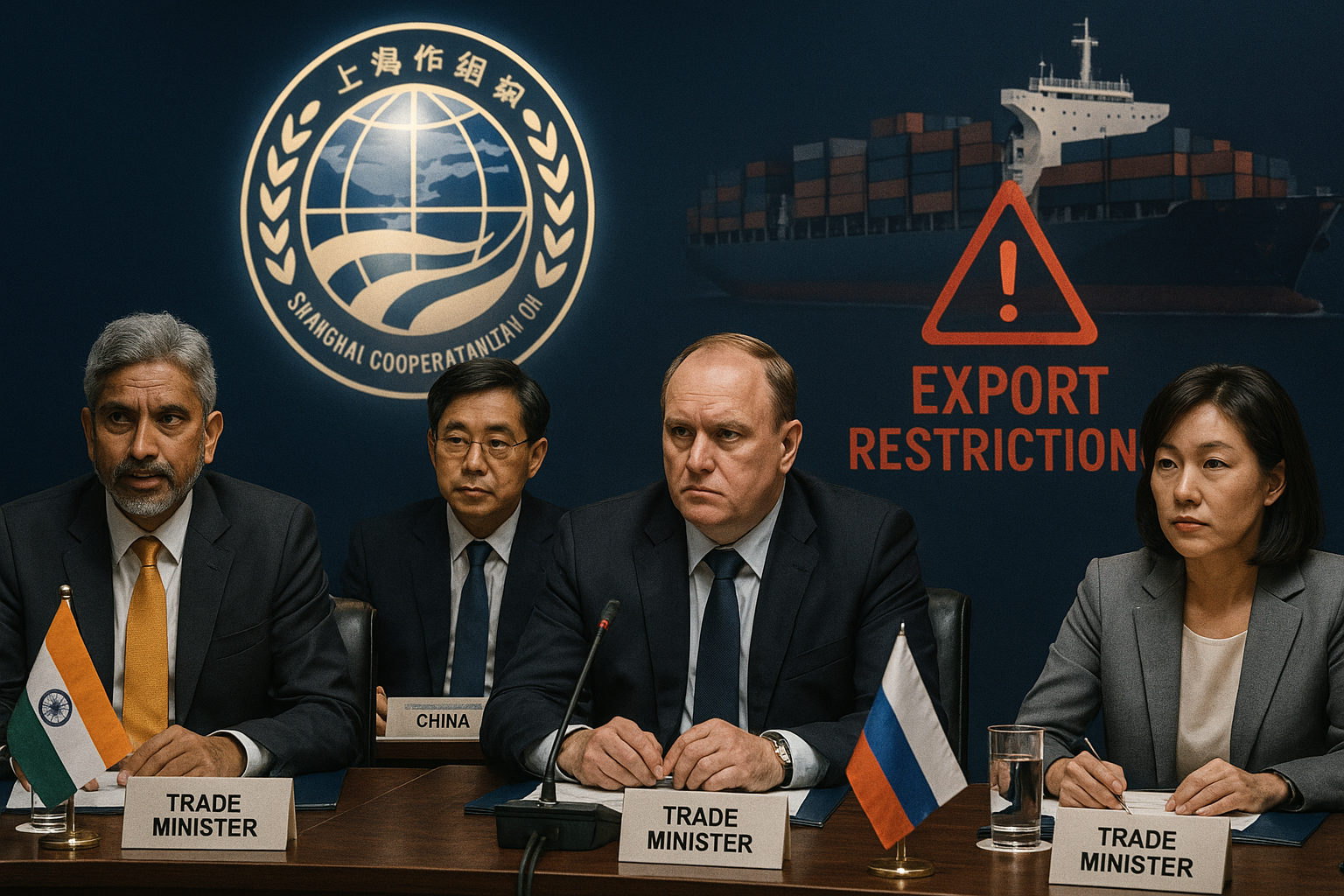India has urged member nations of the Shanghai Cooperation Organisation (SCO) to exercise caution and avoid the misuse of export measures that could distort trade flows and undermine global supply chains. Speaking at a recent SCO meeting, Indian representatives emphasized the importance of transparency, fairness, and adherence to WTO principles in managing export restrictions.
The intervention highlights India’s broader trade strategy — advocating for open markets while protecting domestic interests amid heightened global tariff wars and protectionist trends.
Core Development
India’s delegation at the SCO flagged concerns about how export restrictions on key commodities—including energy, food, and raw materials—are increasingly being used as strategic tools rather than legitimate safeguards. Such practices, India warned, could create long-term instability for both producers and consumers.
India reiterated its commitment to:
WTO-aligned practices in trade policy.
Balanced use of export measures for genuine domestic security needs.
Regional cooperation to maintain predictable supply chains.
Key Drivers Behind India’s Position
Global Trade Tensions: Rising protectionism following U.S. tariff hikes.
Commodity Market Stability: Disruptions in energy and food trade impacting inflation.
India’s Export Strategy: Ensuring its own exporters are not disadvantaged by unfair practices.
Stakeholder Impact
Exporters: Greater assurance of fair market practices if SCO aligns with WTO norms.
Importing Nations: Predictability in supply chains and price stability.
Governments: Encouraged to balance domestic protection with international obligations.
Industry & Policy Reactions
Trade experts praised India’s stance as pragmatic and forward-looking, positioning the country as a voice for fair global trade. However, some noted that India itself has occasionally imposed export curbs on food items, meaning its credibility will depend on maintaining consistency between advocacy and practice.
Challenges Ahead
Balancing Act: India must manage its own domestic needs while pushing for open markets.
Geopolitical Pressures: SCO members with competing interests may resist alignment.
Enforcement Gaps: Without stronger mechanisms, misuse of export measures may persist.
Strategic Outlook
India’s call at the SCO reflects its growing role as a regional trade stabilizer, seeking to balance self-reliance with global integration. By pushing for transparent and rule-based trade practices, India aims to protect exporters, secure supply chains, and reinforce its position as a trusted partner in global commerce.
Why This Matters
Export restrictions can have ripple effects on inflation, supply chains, and growth. India’s intervention highlights the urgency of building fair and predictable trade frameworks, especially as tariff wars and protectionism escalate globally.












